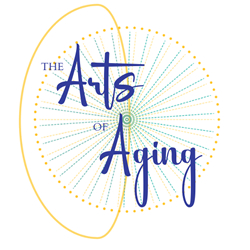When I first learned about Self-Inquiry it really ignited a rebel’s resistance in me. Odd, since I willingly signed up for the training. I wanted to dump all my hardships, all my ugliness at my teacher’s feet as if it was a dare to unravel my mess. I started with my Father.
My Father is living in a memory care community where he receives care for dementia. He is 70 years old, relatively young for a person to experience such symptoms.
My Dad has been a pitcher in the minor leagues, a writer, an inventor, a self-made man. In his life, My Dad has been charming, witty and funny, and also explosive-tempered and reclusive. He experienced depression for most of his adult life.
We had a routine when my son was little where my parents would individually come to our house and babysit for him once a week while I was at work. When my son was about 3, my Dad began arriving later and later on babysitting day, or sometimes calling to cancel with odd excuses.
At Christmas that year he arrived without the gifts he intended to give, causing extreme anxiety that was uncommon for him. He was completely distraught and ashamed. I reassured him that it was not necessary to feel so disappointed in himself for forgetting the gifts. What I understand now is that the “I’m still the old me” facade he worked so tirelessly to wear for us was thinning and he was distraught because he couldn’t control it.
The day we arrived home from the hospital with my second child, I got a call from a police department 300 miles away. They wanted me to know that they found my Dad asleep in his car, in a Kroger parking lot at about 2AM, and that my Dad didn’t know how he came to be there.
My Dad taught me, “nobody cares about your problems more than you do, so you’ve got to be your own best advocate.” I had no experience with dementia or caring for a parent but I assembled a crisis team and I became my Dad’s best advocate.
I found social workers who could support him in his home until we found a senior living apartment for him. I searched for a nursing home in his neighborhood when the senior apartment couldn’t meet his developing needs. I also found tremendous guidance and support through the 24-hour helpline of alz.org, and I would encourage anyone to reach out their organization.
I deeply resented the workload. I also deeply resented the fact that my Dad had left me and yet was still here. To me it was like the worst kind of death. I also felt deeply selfish for feeling that way. I dumped all this squarely into the lap of my self-inquiry teacher.
Self-Inquiry diffuses the power of a thought through simple questions. Each question creates more space to look with curiosity at thoughts in order to experience more acceptance, more peace with reality. It’s possible to see what thoughts created this particular experience and whether it brings you peace or pain.
My awakening came at the moment my teacher asked me to consider the opposite of a passage I had written, “my Dad had piled a series of burdens on me”. Turned around, I had piled a series of burdens on my Dad. I wasn’t expecting this statement to feel less painful than to original thought, but it did.
I saw that the burden was wanting the facade, demanding that the man who was experiencing world-rocking, life-altering dementia continue playing the role of My Dad. I know that being My Dad is one of Warren Shore’s greatest accomplishments, and it is in the past. I saw that the story of “My Dad” was getting in the way of having a relationship with him. This was creating the death I was experiencing. When I awakened to the contrast between that story and reality, my relationship with My Dad stopped being a burden.
I enjoy spending time with my Dad at the nursing home. Last time I was there I showed him a new app from StoryCorps, where you can record family stories and archive them. It’s easy for him to talk in the distant past tense so I was asking him questions about his childhood and getting him to tell some of my favorite family stories. At one point, my Dad got quiet as though he had gotten lost a bit and to gently get him back on track I asked him “what’s the name for what you’re experiencing?” I assumed he would explain his experience of having dementia. He answered, “goodness”. I’m willing to let go of my story in exchange for moments like these.


